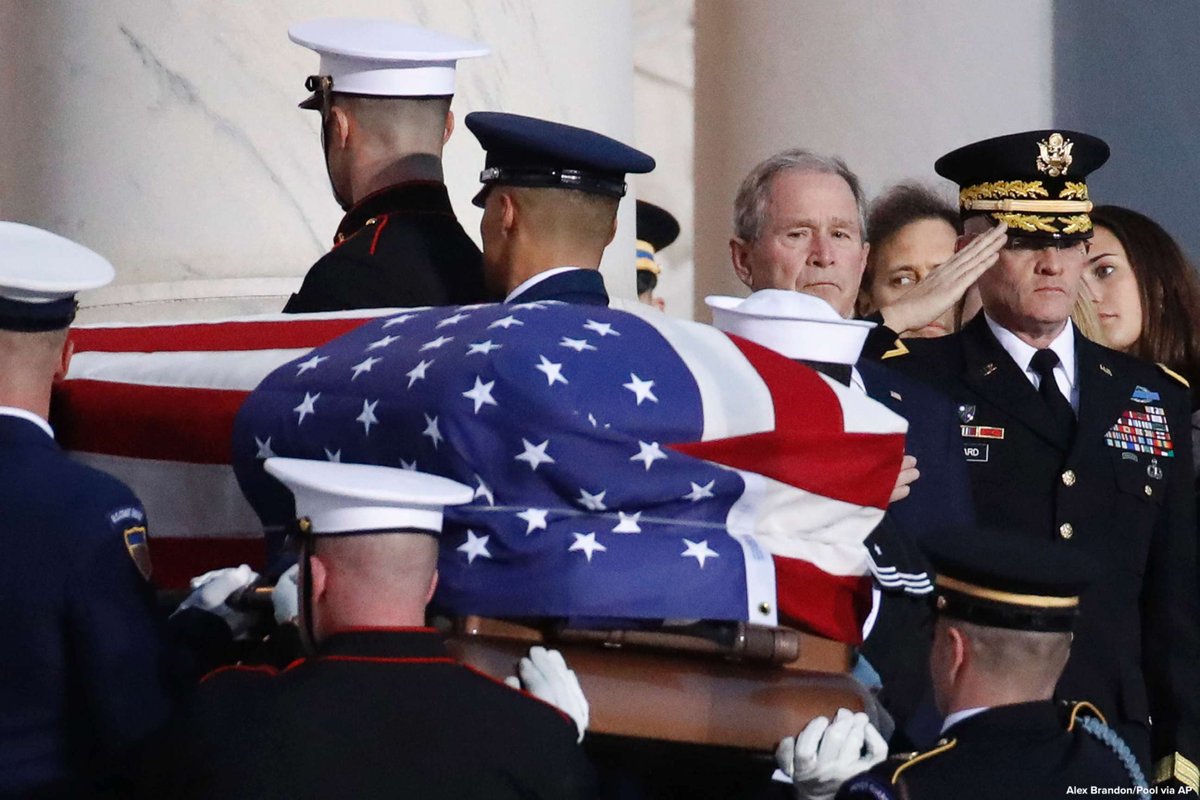Hundreds of dignitaries, heads of state and family members will gather at Washington National Cathedral Wednesday for a state funeral honoring the life of former President George H.W. Bush.
The remains of the 41st president, who passed away last Friday at the age of 94, have been lying in state at the U.S. Capitol Rotunda since Monday afternoon.
Thousands of individuals have visited the Capitol to pay their respects to Bush, who has been memorialized among a bipartisan chorus of voices since his death, for his commitment to national service and dedication to his family.
According to the current schedule, there will be a departure ceremony at the Capitol beginning at 10 a.m., and Bush’s casket will be transported to the National Cathedral by motorcade.

The Bush family, including former President George W. Bush and first lady Laura Bush, will arrive at the cathedral with military escorts and take their seats before the casket is transported to the cathedral landing by a group of honorary pallbearers.
The program itself is largely reflective of Bush’s own service in the military, and will include full state’s honors and performances by the U.S. Marine Chamber Orchestra, the Armed Forces Chorus, the Air Force Singing Sergeants and the “President’s Own” Marine Band, among others.
It will mark a contrast to the funeral service scheduled for Thursday after the president’s return to Texas, which is said to feature friends of the family from “west of the Mississippi” and includes performances from the Oak Ridge Boys and Reba McEntire.
The attendee list at the national service is a bipartisan cadre of current and former heads of state, and will be the first time that President Trump is in the same room as all the former living presidents, as well as his defeated 2016 campaign rival, former Secretary of State Hillary Clinton.
President Trump’s public statements about Bush since his passing and the White House’s coordination of the service have largely received praise for striking a tone of respect and being in alignment with his predecessors’ handling of state funerals.
